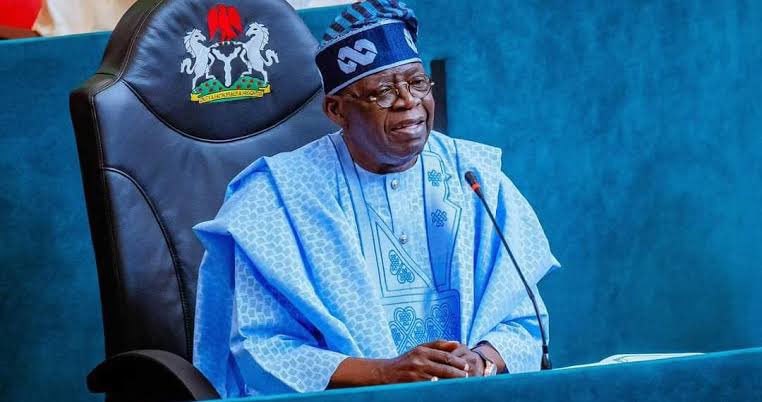President Bola Tinubu has reaffirmed his commitment to adopting a market-driven model for oil sector reform in Nigeria.
Speaking at the State House on Tuesday, the President emphasized that the sector must not return to the state it was in four decades ago.
He urged stakeholders to prioritize local production by ensuring adequate supply of petrol and petroleum products for domestic consumption, reducing the nation’s dependence on imports.
Tinubu highlighted that such efforts would free up foreign exchange for investment in the real sector.
The President also recommended stakeholders engage Afreximbank as a settlement bank to address Naira pricing challenges for crude and refined products, noting that the bank is already serving as a financial adviser.
What the President Said
“Whatever solution we proffer in crude oil and refined products sales in Naira should not take us back to our experience in the last 40 years.
“There can be cost and revenue adjustment in the oil sector, but the issue is that the government will not have to go back to the old way of doing things.
“The market must determine what we are doing. Once you allow the market to determine the profit and loss, independent marketers and the government side can meet on the worksheet.
“I want the issues resolved without future waste of time.
“We can have energy security, and the motivation for Alhaji Aliko Dangote will not be defeated. It will be more predictable on a medium and long-term basis,” Tinubu said.
More Insights
On his part Mr Wale Edun, the Minister of Finance and Coordinating Minister of the Economy, said the administration’s groundbreaking steps to sell crude in Naira would not be reversed.
- He said the government would not be involved in determining the rate of exchange for the oil sector.
- Alhaji Aliko Dangote, the President and Chief Executive of Dangote Group, told the President that the refinery had more than 500 million litres of fuel in reserve after supplying 400 million to the economy.
- He said the refinery could collaborate with the other refineries managed by NNPCL to meet an estimated 32 million litres of local petrol needs.
Moreover, Zach Adedeji, Chairman, Federal Inland Revenue Service, who chairs the technical committee, said importing refined products should end once the capacity to produce enough to meet domestic needs was achieved.
“The vision of Mr President is to turn Nigeria into a hub for refined products to export to the world,” he said.
What you should know
Since assuming office, President Bola Tinubu has implemented several reforms in the oil and gas sector.
- The most controversial among these is the removal of the popular but expensive fuel subsidy, which has led to an increase in petrol prices.
- Another key reform is the Naira-for-crude agreement between local refineries and oil producers, designed to ease pressure on the nation’s foreign exchange reserves.
- Refineries such as the Dangote Refinery are expected to supply petrol to the market in local currency, supporting this initiative.
These reforms, among others, mark a shift towards full deregulation of the sector, aimed at attracting investment and fostering a level playing field for all stakeholders.
